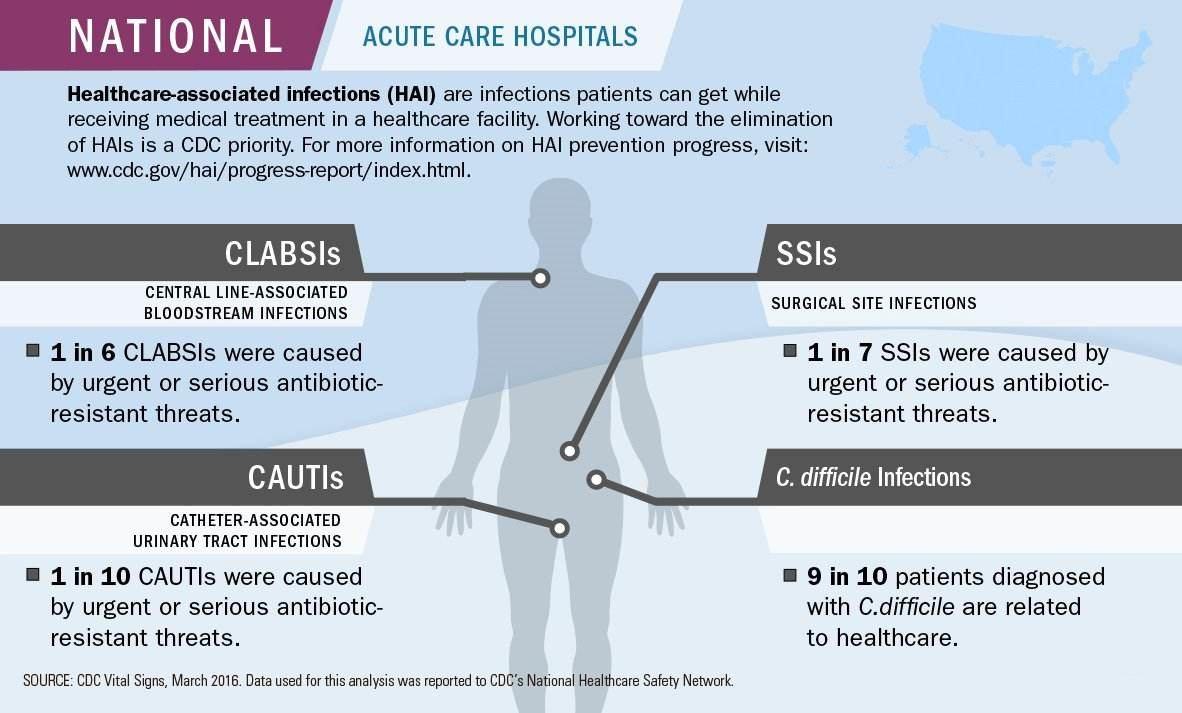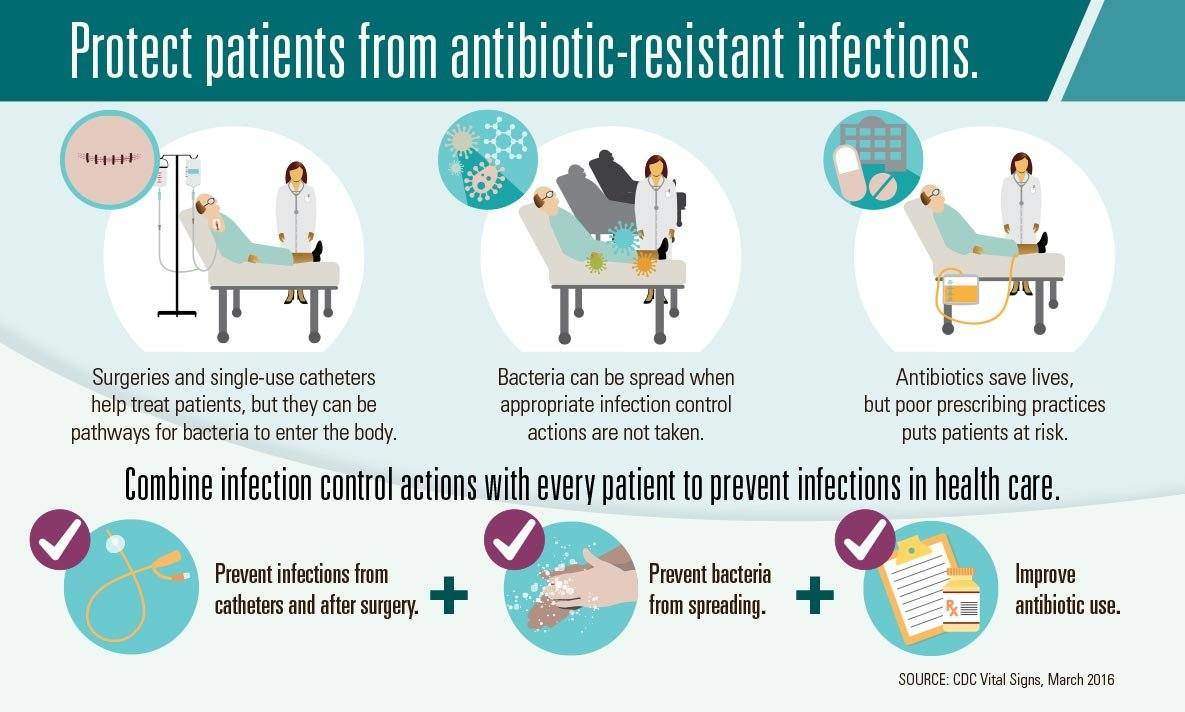People receiving medical care can get serious infections called healthcare-associated infections (HAIs), which may lead to sepsis or death. Hospitals report common HAIs to CDC, including infections caused by C. difficile, infections following surgery, and infections following placement of a tube in the bladder or a large vein (catheter). These infections can be caused by bacteria that are resistant to antibiotics, making them difficult to treat. In certain kinds of hospitals, one in four of these infections (not including C. difficile) are caused by antibiotic-resistant bacteria identified by CDC as urgent or serious threats to health.* Although progress has been made, more work is needed. Three critical efforts to prevent an HAI are 1) prevent infections related to surgery or placement of a catheter, 2) prevent spread of bacteria between patients, and 3) improve antibiotic use. It’s important that healthcare providers take these actions with every patient every time to prevent HAIs and stop the spread of antibiotic resistance.


